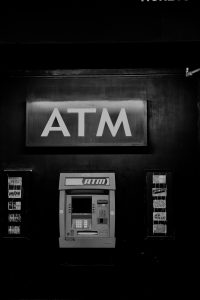Forex trading is a highly liquid market that operates 24 hours a day, five days a week. This means that traders can execute trades at any time, regardless of their geographical location. However, during market closures, such as weekends and holidays, forex trading is temporarily halted. In this article, we will discuss the pros and cons of trading forex during market closures.
Pros of Trading Forex During Market Closures:
1. Time for Analysis and Strategy Development: Market closures provide traders with the opportunity to step back and analyze the market. It gives them time to study charts, identify trends, and develop trading strategies. This can be especially beneficial for traders who rely on technical analysis as it allows them to focus on historical price patterns and indicators without the distraction of live market movements.
2. Reduced Volatility: During market closures, the forex market is less volatile compared to regular trading hours. This can be advantageous for conservative traders who prefer low-risk trading opportunities. With reduced volatility, traders can have more control over their trades and can avoid sudden price fluctuations that could result in significant losses.
3. Preparation for Upcoming Events: Market closures often coincide with weekends or public holidays, which are periods when important economic events or news releases might be scheduled. Traders can use this time to research and prepare for these upcoming events. By staying informed about economic indicators, central bank decisions, and political developments, traders can position themselves to take advantage of potential market movements when the market reopens.
Cons of Trading Forex During Market Closures:
1. Limited Trading Opportunities: The most obvious drawback of trading forex during market closures is the absence of live trading opportunities. Since the forex market is closed, traders cannot execute new trades or monitor existing positions. This can be frustrating for active traders who rely on daily market fluctuations to generate profits. Market closures can disrupt trading routines and may require traders to adjust their strategies accordingly.
2. Increased Risk of Gaps: Market closures can lead to significant price gaps when the market reopens. These gaps occur when the opening price on Monday or after a holiday is significantly different from the closing price on the previous trading day. Gaps can result in unexpected losses, especially for traders who hold open positions over the weekend. While gaps can also work in a trader’s favor, they introduce an element of uncertainty and can make risk management more challenging.
3. Missed Opportunities: Trading forex during market closures means missing out on potential profit opportunities. The forex market is interconnected with global markets, and significant events in other markets can have a direct impact on currency prices. By not being able to trade during market closures, traders may miss out on potential profit-making events or news releases that could have favorable trading conditions.
Conclusion:
Trading forex during market closures has its pros and cons. While it provides an opportunity for traders to analyze the market, develop strategies, and prepare for upcoming events, it also means limited trading opportunities and increased risk of gaps when the market reopens. It is essential for traders to carefully consider their trading goals, risk tolerance, and preferred trading style before deciding whether to engage in forex trading during market closures.





